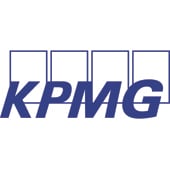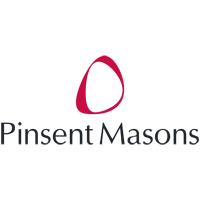

General counsel | KPMG




Jeremy Barton
General counsel | KPMG
Banks and professional services | KPMG
Team size: 39 Major law firms used: DLA Piper, Freshfields Bruckhaus Deringer, Osborne Clarke, Pinsent Masons Jeremy Barton, GC of Big Four firm KPMG, is one of the leading lights...
Team size: 70
Major legal advisers: Linklaters, Freshfields Bruckhaus Deringer, Orrick, Herbert Smith Freehills, Eversheds Sutherland, DLA Piper
What have been the most important transactions and litigations that you’ve been involved with during the last twelve months?
The biggest transaction was the disposal of our restructuring business in the UK. We also have ongoing investigations, which last year included a virtual hearing.
Has working from home inspired any innovation in terms of the way you or your team work? Are there any standout product or tech you now use that you never did before?
First of all, going into lockdown, it was not new technology that we were using. Actually, the Teams function we had just rolled out as an organisation before the lockdown happened. It was perfect timing for us and has been very successful. I would say also our use of the slido technology for polling the team for how it was doing during lockdown and taking pulse of the team during some of our meetings has also been a real help. Again, that was new but it’s not revolutionary.
We were already using DocuSign, and there have been innovations in how we are meeting, for example the regularity of the ‘huddle’. These were a new feature of keeping in touch with each other while we haven’t been in the office.
The only other new way of working, which is perhaps more important, is how it is easier now to actually bring external counsel into a conversation. Previously when organising meetings, you had to work out which part of London they were in to come meet us in Canary Wharf, and consequently there was internal friction to having that closer collaboration with external counsel, whereas now it’s very easy. It’s really much easier to collaborate and provide a seamless service between internal and external.
Do you think that you’ll continue to use some of that software or those ways of working as a team?
There’s no going back on some of the things I’ve mentioned, they’re here to stay for the better. I think people will want to go into the office, but the business reason for going to the office will be more related to the collaboration and productivity of working on things jointly with your colleagues, which is better done in person than electronically. This, combined with the interpersonal experience of being there with other people in the same building will be the reasons for being in the office, not just because you’re putting in hours on legal documents.
Looking towards the next twelve months, how will you safeguard the business on the operational side?
In general, the combination of being agile, and also taking the opportunities that present themselves. For example, on the agility side, as we go back to the office, looking to use it primarily for collaboration, do we look to change the layout in order to facilitate this? How we use our office space to be more collaborative and more productive with our clients is a key question.
There’s a great opportunity at the moment, and at KPMG we are looking to see how we can maximise that. We have a centre in in the Canary Wharf office called the Ignition Centre, which has been fitted out during the COVID period. It is a great space for collaborating with clients, not just with colleagues, and the feedback from clients has been great.
That’s a commercial thing which will help the long term health of the business I’ve no doubt. In terms of business flexibility, the fact that we don’t all have to be in the same office means that we can relook our outsourcing strategy and see if there are more things to outsource or to offshore. I already have a number of my team that are based in India, and we’re currently growing some of the resources there, for example in data privacy. Again, being flexible around how you are located is going to help in terms of the long term health of the business. My first point was about clients and this point is really about costs. Both of them contribute to the health of the business.
Speaking of outsourcing, and in terms of the EU withdrawal agreement, has that changed how you interact with your partners on the continent at all?
We breathe a sigh of relief with the EU, acknowledging the UK data privacy regime as being adequate for EU purposes. We’re not looking forward to more bureaucracy around data privacy compliance if the UK hadn’t been deemed adequate by the EU, so that’s a useful development which means smoother continuation of operations. I think in terms of the business, we at KPMG are slightly different from regular corporate in that we have network firms in the EU and so can collaborate with them post Brexit in a very similar way to how we collaborate with them today, or how we used to before Brexit.
What would you say is the biggest lesson that you’ve learned, in the last twelve months or lockdown, professionally or personally?
The biggest lesson may well be the critical importance of having humanity in the business world. I think we’ve just realised that we’ve lowered the barriers between our business lives, our home lives, our family lives and our humanity. It’s all linked into the wellbeing agenda. As we go into the future, I suspect that the humanity dimension is going to feature more importantly and more relevantly, and will be accepted as a really important factor in decision making.